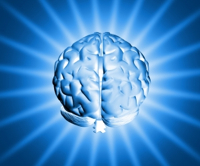 Is the Internet making us dumber or are we just using our brains in new ways? The BBC posted a great overview of a new study which makes the case for a neat trick the brain is pulling now that we have 24/7 access to the web.
Is the Internet making us dumber or are we just using our brains in new ways? The BBC posted a great overview of a new study which makes the case for a neat trick the brain is pulling now that we have 24/7 access to the web.
The article notes:
“When participants knew that facts would be available on a computer later, they had poor recall of answers but enhanced recall of where they were stored.
The researchers say the internet acts as a “transactive memory” that we depend upon to remember for us”
This jibes with my own experience over the last decade. Memorizing facts and dates is so 20th Century. Bottom line – this mental strategy frees our brains up for other work.
When it comes to designing education media this has huge implications for every aspect of the products that come out of our industry. Design, marketing, implementation – all need an overhaul in light of this one simple concept.
This is part of why I’m so excited to be participating in the Learning Resources Metadata Initiative (LRMI) as a delegate from the publishing industry. I’ll be writing more on that in the coming months as the project gets off the ground.
Start your week on a positive note and go read the BBC’s article.
 The Education Business Blog
The Education Business Blog

